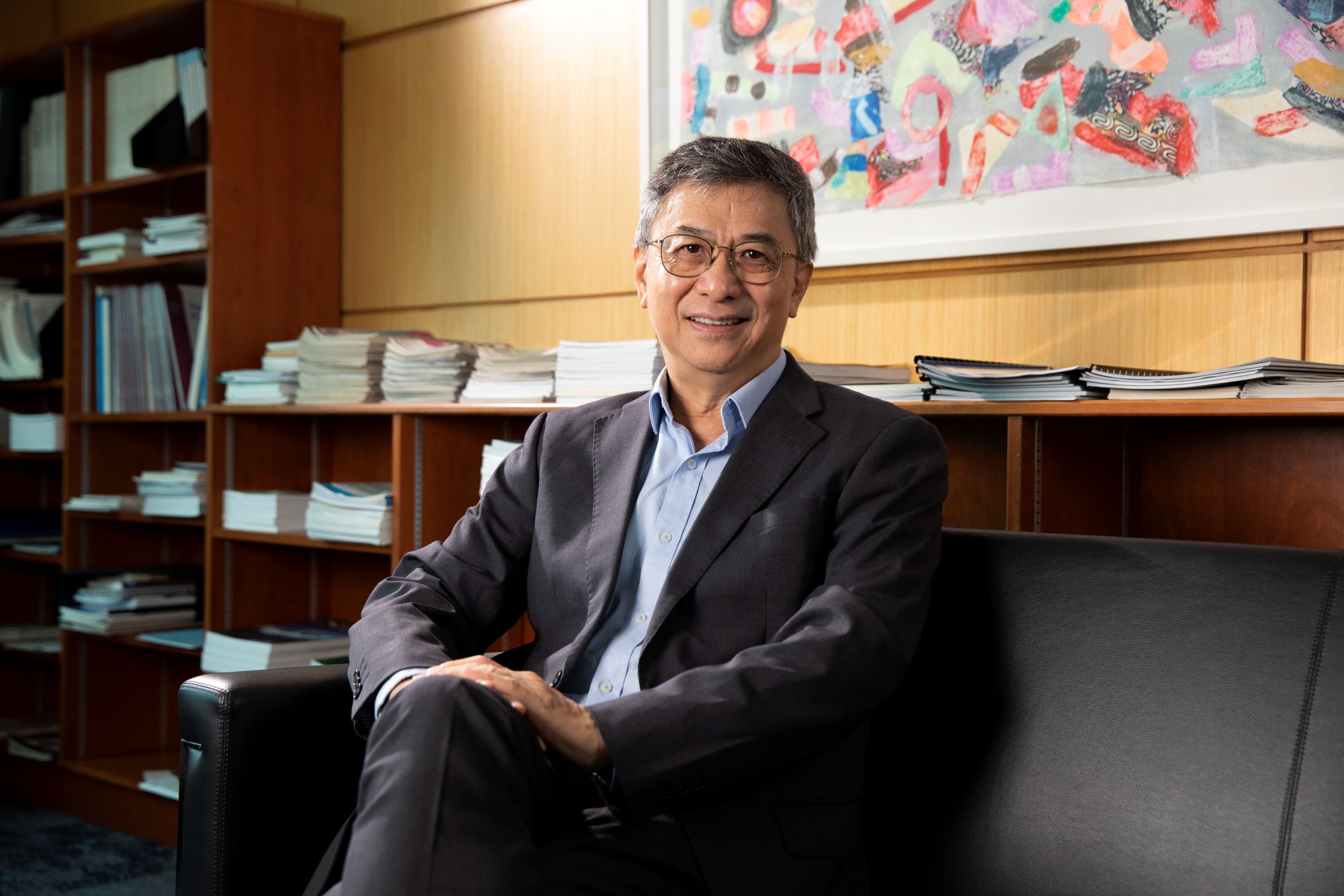Economic Policy and Influence

Interview with Hoon Hian Teck, Professor of Economics
School of Economics, Singapore Management University
From research idea to better well-being
A macroeconomist and senior faculty at the SMU School of Economics, Professor Hoon Hian Teck lays out the foundations for producing credible research that improves lives and solves big challenges.
The Singapore Management University (SMU) sits in the heart of the city’s civic buildings and is a stone’s throw away from the Central Business District. Within its iconic leafy-clad buildings, the School of Economics’ (SOE) researchers are strongly connected to the business, government and community workers hurrying by throughout the day, and to the problems they are on their way to solve.
Such connection to life outside of academia, and outside of Singapore, is crucial to the SOE’s research impact, says Professor Hoon Hian Teck. “International engagement and contributing to research globally help our faculty keep sight of the wider and longer-term context, so we tackle new or immediate local issues in a way that relates to global trends,” he explains.
Together with this connected, long-term view, Hoon says that SOE’s strong foundations in research method and theory have enabled SOE to improve Singapore’s well-being, advance social science globally, and provide rigorous analysis to new challenges, not least Singapore’s response to the COVID-19 pandemic.
Strong foundations enable swift response
When research hits the headlines or helps with challenges like the COVID-19 pandemic, people notice its value. However, what they might not appreciate is that the societal benefits that research bring are the culmination of many small steps taken years before. From being a germ of an idea exchanged between academic colleagues, to making it real and applicable through building consensus, the immense effort and investment is nothing less than a remarkable journey—one that takes plenty of hard work and foresight.
In 2015, SOE established The Singapore Life Panel (SLP) to understand and promote the well-being of ageing people in Singapore. Hosted at the Centre for Research on Successful Ageing (ROSA), the SLP surveys people aged between 50 and 70 years old every month. It has since grown to include about 11,000 people and has collected around half a million survey responses.
Having this high-quality research infrastructure in place enabled the SLP to provide swift and current information about how older adults were coping and responding to issues such as the need for vaccines.
Investing in foundations
Hoon explains that the main reason for committing to a big investment like the SLP was to overcome the perennial challenge for social science research: understanding why humans, the most complex of beings, do the things they do, so that we can change or improve their lives.
“Compared to hard sciences, where there are well established and widely accepted research methods such as randomised controlled trials, social science research takes place in a largely uncontrolled and dynamic environment, so determining what’s causing things becomes much more difficult,” explains Hoon.
Indeed, one of the greatest challenges that SOE researchers face is trying to combine fine grained detail from modern survey methods with the development of statistical methods to gain greater certainty about the factors influencing our lives. Overcoming such challenges also serves as the motivation for SOE’s contribution to social science globally.
“Our strong focus on foundational skills and tools has helped us build a great team of econometricians and statisticians who are devoted to developing and improving the reliability of statistical tools applied in everyday research,” says Hoon.
Theory never goes out of style
The third tenet to SOE’s research strategy is the value of understanding theory and how it applies in the real world. “In economics, a lot of emphasis is placed on statistics but a good theory is needed to frame the question, understand the relationships and tell a meaningful story,” says Hoon, citing the 2008 Lehman Brothers case as a good example of how robust theory helps us to manage complex situations.
“The ‘bank run theory’ helped regulators and businesses look a few steps ahead as events unfolded at speed,” he adds. “Similarly, when COVID-19 hit, existing and new theories helped us to understand the pandemic’s immediate and long-term impacts and decide what actions to take.”
SOE’s economic policy and influence
Universities have a responsibility to address global concerns and create solutions that improve life for future generations. As the world readjusts to a reality redefined by the COVID pandemic and fractured geo-politics, SOE will continue to provide information, analysis and solutions.
“Whether it is climate change, green energy, digital transformation or economic development, our researchers will continue to catalyse change and create solutions that will enhance how people live, work and care for each other.”
Prof Hoon’s interview is part of a research series showcasing 30 of SOE’s faculty members.